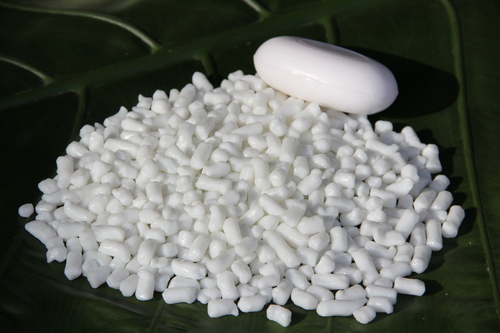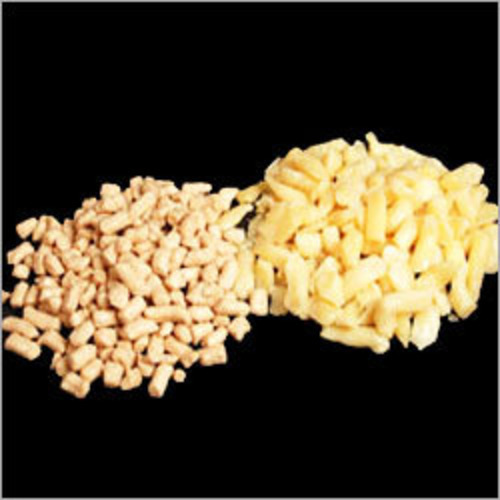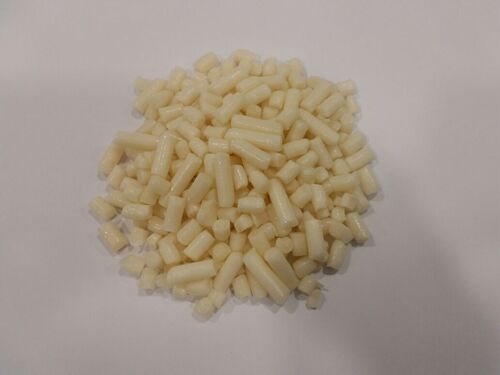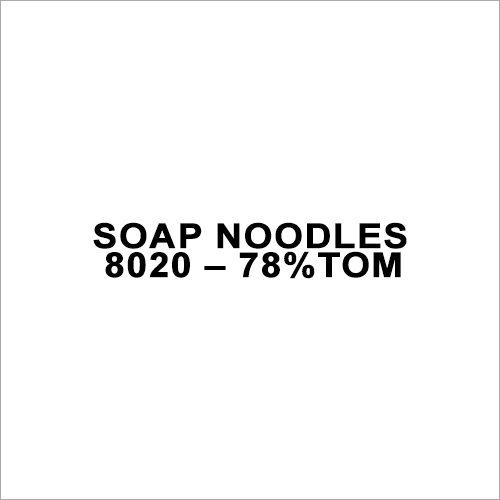
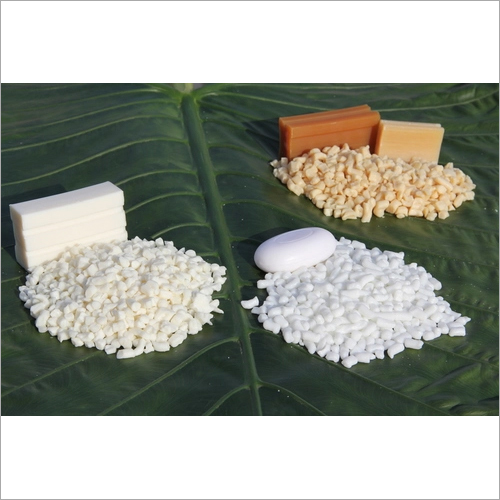
Multipurpose Soap Noodles (Swing)
900.00 USD ($)/Metric Ton
Product Details:
- Ingredients Palm Oil
- Soap Type Toilet Soap
- Product Type Soap Raw Material
- Transparency NO
- Logo Self Logo
- Click to View more
X
Multipurpose Soap Noodles (Swing) Price And Quantity
- 900.00 USD ($)/Metric Ton
- 21 Metric Ton
Multipurpose Soap Noodles (Swing) Product Specifications
- Palm Oil
- Soap Raw Material
- Toilet Soap
- Self Logo
- NO
Multipurpose Soap Noodles (Swing) Trade Information
- Any Malaysia/Indonesia ports
- Letter of Credit (L/C) Telegraphic Transfer (T/T) Letter of Credit at Sight (Sight L/C)
- 4000-5000 Metric Ton Per Month
- 1 Months
- Yes
- Contact us for information regarding our sample policy
- Packing is available in 25kg bags with / without pallets as well as Jumbo bags with pallets.
- Australia North America South America Eastern Europe Western Europe Middle East Africa Central America Asia
- All India
Product Description
Multipurpose Soap Noodles (Swing), also known as soap chips or soap base noodles, are the basic raw materials used in the production of soap bars. They are an essential component in the soap-making process. These noodles are versatile and serve as a starting point for creating various types of soaps with different formulations, scents, and colors.
Multipurpose Soap Noodle manufacturing process involves saponifying fats or oils with an alkali to produce soap. The resulting soap is then dried and formed into small, solid pieces or noodles, which can be melted, combined with other ingredients, and molded into the final soap bars.
The multipurpose aspect of soap noodles lies in their ability to be used as a foundation for producing different types of soaps, including:
1. Transparent soap: By adding additional ingredients like glycerin, sugar, or alcohol, soap noodles can be used to produce transparent soaps.
2. Glycerin soap: Glycerin soap noodles, enriched with glycerin, are popular for their moisturizing properties.
3. Aromatherapy soap: Essential oils, fragrances, and various herbal additives can be mixed with soap noodles to create aromatherapy or herbal soaps.
4. Medicated soap: To produce medicated soaps with specific properties, additional ingredients like anti-bacterial agents or skin-soothing additives can be incorporated.
5. Exfoliating soap: Soap noodles can be combined with natural exfoliants like oatmeal, coffee grounds, or crushed seeds to create exfoliating soaps.
6. Moisturizing soap: Adding ingredients like shea butter, cocoa butter, or oils to soap noodles enhances the moisturizing capabilities of the resulting soap.
7. Antifungal or antibacterial soap: Soap noodles can be combined with specific additives to create soaps with antifungal or antibacterial properties.
8. Baby soap: Gentle formulations with mild ingredients are used to make baby soaps, suitable for delicate and sensitive skin.
FAQ:
Q: What are soap noodles?
A: Soap noodles, also known as soap chips or soap base noodles, are the basic raw materials used in soap production. They are solid pieces or noodles made by saponifying fats or oils with an alkali.
Q: What makes soap noodles multipurpose?
A: Soap noodles are versatile because they can serve as a foundation for creating various types of soaps with different formulations, scents, colors, and properties.
Q: How are soap noodles used to make different types of soap?
A: Soap noodles are melted and mixed with additional ingredients such as glycerin, essential oils, fragrances, herbal additives, exfoliants, moisturizers, and medicinal agents to produce different types of soaps.
Q: What types of soaps can be made using soap noodles?
A: Soap noodles can be used to make transparent soap, glycerin soap, aromatherapy soap, medicated soap, exfoliating soap, moisturizing soap, antifungal or antibacterial soap, and baby soap, among others.
Q: Are soap noodles suitable for sensitive skin?
A: Yes, soap noodles can be used to create soap formulations suitable for sensitive skin, such as baby soaps and hypoallergenic options.
Q: Can I customize the soap I make using soap noodles?
A: Yes, soap noodles allow you to customize your soap formulations by adding specific ingredients, scents, and colors according to your preferences and market demands.
Q: Where can I buy soap noodles?
A: Soap noodles are commonly available from soap-making suppliers, chemical suppliers, and manufacturers. They are often sold in bulk quantities.
Q: Are soap noodles natural or synthetic?
A: Soap noodles can be made from both natural and synthetic ingredients, depending on the manufacturer's formulation.
Q: Do soap noodles contain any lye (sodium hydroxide)?
A: Soap noodles are produced through the saponification process, where fats or oils are reacted with an alkali (often sodium hydroxide) to produce soap. However, in the final soap product, there is no remaining lye, as it is fully consumed during the saponification process.
Q: Are soap noodles environmentally friendly?
A: The environmental impact of soap noodles depends on the ingredients used in their production. Some soap noodles may contain natural and eco-friendly components, while others may include synthetic additives. Choosing soap noodles with sustainable ingredients can contribute to their environmental friendliness.
Enter Buying Requirement Details
 English
English Spanish
Spanish French
French German
German Italian
Italian Chinese (Simplified)
Chinese (Simplified) Japanese
Japanese Korean
Korean Arabic
Arabic Portuguese
Portuguese

